Why Americans Should Care About Political Murders in Bangladesh
Bloggers' deaths are buried in the language of terrorism, but it's much more complicated than that.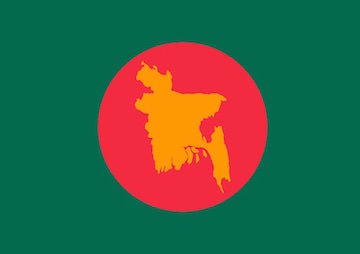 Himasaram / Wikimedia Commons (CC-BY-SA)
Himasaram / Wikimedia Commons (CC-BY-SA)
Mystery surrounds the assassinations of “bloggers” and “Islamists” in Bangladesh. Every so often one hears of the death of a blogger, although rarely does the foreign press pay attention to the killings of the various strands of Islamists. Nonetheless, when the stories do emerge, they come with an air of obviousness. It is obviously the atheistic blogger who is killed by the Islamic fanatic. That is self-evident. The killing of the Islamist – such as the preacher and TV personality Nurul Islam Faruqi in 2014 – is more difficult to understand. It does not fit the classical storyline, so it is not covered with as much enthusiasm. It is far easier to toss Bangladesh’s trials into the sequence of ill-fated events that run from Libya through Syria-Iraq to Indonesia. What explanation is necessary if the culprit is al-Qaeda or the Islamic State? Nothing more needs to be said.
Last week, Ansar al-Islam – the purported Bangladeshi wing of al-Qaeda in the Indian subcontinent – hacked to death a secular blogger Nazimuddin Samad. How does one know that the killer came from Ansar al-Islam or that there is any link to al-Qaeda? A controversial U.S.-based website, SITE (Search for International Terrorist Entities), hastily makes the connections, which are then reported as fact by the foreign media. The evidence SITE marshals is flimsy, often being based on claims made on Twitter or on YouTube. When the Pakistani writer Aniqa Naz died in a car accident, al-Qaeda took responsibility for it. This surprised her family, who believe that her car was struck while she went to pick up her daughter from school; since she did not wear a seatbelt her injuries were fatal. Opportunism by al-Qaeda and exaggerations by SITE do not help clarify what is happening in Bangladesh. The art of political murder requires much more careful analysis.
Tareque Masud, one of Bangladesh’s great filmmakers, pointedly said, Bangladesh’e kono al-Qaeda lage na. Amra nijerai beqaeda’e feli (We don’t need al-Qaeda, since we are ourselves adept at getting ourselves into trouble). Masud, who died in a car crash in 2011, made one of the finest documentaries on Bangladesh’s 1971 Liberation War, Muktir Gaan (The Song of Freedom,1995). The film follows a cultural troupe, which went from refugee camp to refugee camp inspiring people to fight for the liberation of Bangladesh from Pakistan. Masud’s second film, Matir Moina (The Clay Bird, 2002) is a sensitive meditation on religion and liberation in the years leading up to 1971. The government initially banned the film on the ground that it touched too close to the heart of Bangladesh’s contradictions, along the lines of secularism and religion, poverty and discontent. Masud’s nuanced approach to his country’s trials led him to articulate straightforwardly what many feel, which is that the bogey of al-Qaeda and ISIL do not answer the questions of social rot in his country.
Poverty, endemic flooding due to climate change and dangerous working conditions in the global garment industry stalk Bangladesh. When the Rana Plaza building collapsed in 2013, killing over a thousand workers, it brought attention to the miserable conditions for workers in Bangladesh. But then, the eyes drifted elsewhere. There are about five thousand Rana Plaza like buildings near Dhaka, the capital of Bangladesh. Close to five million people work in these factories that produce cheap clothing for the world market. Staggeringly high rates of rural poverty push agriculturalists from the flood plains of southern Asia into these flimsy and dangerous factories. The brutal conditions of the workers’ lives go unaddressed in the country. It is not uncommon to hear members of the Bangladeshi political elite blame the workers for their own conditions, since – it is said – they are illiterate and from the countryside, so they do not follow the law.
Unity of opinions about the workers is all that unites the political elite. Its two parties – the ruling Awami League and the opposition Bangladesh National Party (BNP) – are in a dangerous struggle, with assassinations of party workers on both sides a commonplace occurrence. Petrol bombs and machetes are the preferred instruments of murder. In 2015, the BNP put Dhaka under siege after its leader said that the previous year’s election was fraudulent. The ruling Awami League, on the other hand, slings the slur of terrorism at the BNP, and has also accused the party of being behind the killing of the bloggers. It suits the ruling party to use these deaths as a way to malign the opposition. It does not help the opposition BNP that it has used extreme violence against the Awami League supporters in frustration at being out of power.
Some of these tensions are merely about power and others are about Bangladesh’s unresolved history from 1971. Three years ago, in 2013, the courts finally went after members of the Jamaat-e-Islami, who had collaborated actively with the Pakistani military in the carnage against the Bangladeshi nationalists. Masud’s films had picked at what had remained unspoken and only now – four decades later – has been allowed into the courts. When the courts sentenced Jamaat leader Abdul Quader Mollah to life in prison, he emerged into the sunlight with a smile and a victory sign. He had been saved from the gallows. His arrogance angered families of the victims. Ordinary people went to Shahbag, an intersection in Dhaka, and camped out in protest. They called for the death penalty. This was not necessarily bloodthirsty, although they did chant, Ar Kono dabi nai, Razakarder Fashi Chai – we want nothing other than hanging for the war criminals. What the Shahbag protest suggested was an accounting of Bangladesh’s buried history and its current culture of impunity. The political parties – steeped in the muck of that history and impunity – could not deliver what the people wanted.
The culture of impunity creates an atmosphere of indifference amongst the population. Dina Siddiqi, who teaches at BRAC University in Dhaka, points out that when the blogger Avijit Roy was killed at the annual Boi Mela (book fair) in February 2015, the police stood by and did not intervene. In April that year, during celebrations of Bangla New Year in Dhaka Universtiy, several women and girls were systematically disrobed and assaulted in public. “As in the case of Avijit Roy,” says Siddiqi, “few bystanders intervened presumably due to fear – or perhaps because violence is so easily rendered into spectacle.” The Inspector General of Police – AKM Shahidul Haque – said that this was young boys “having fun.” It is this kind of callousness that had already been a topic of discussion at Shahbag, a cry in the dark for a more responsive society.
When Shahbag did not inaugurate a new political platform, it meant that the tensions it raised would be settled in a commonplace way: by execution and intimidation of anyone interested in picking at the scabs that have formed over the country’s past. Many of those whom I spoke to for this story declined to be named in the article. The reason was partly fear and partly bewilderment: what is one to say? Can anything be said that pierces the fog of cliché? Every bloggers death is being buried in the language of terrorism. The government is eager to use this narrative to become part of the global fight against terrorism, perhaps to earn U.S. aid in its valiant battle and to allow it to push forward a much stricter surveillance apparatus on its population. States that place themselves at the front lines of the war on terror, use the opportunity to narrow the space for political dissent. The death of the bloggers will not widen that space nor will it produce a new culture of liability. It seems, sadly, to do the opposite.
Your support is crucial...As we navigate an uncertain 2025, with a new administration questioning press freedoms, the risks are clear: our ability to report freely is under threat.
Your tax-deductible donation enables us to dig deeper, delivering fearless investigative reporting and analysis that exposes the reality beneath the headlines — without compromise.
Now is the time to take action. Stand with our courageous journalists. Donate today to protect a free press, uphold democracy and uncover the stories that need to be told.
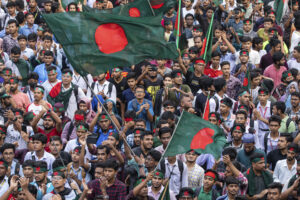
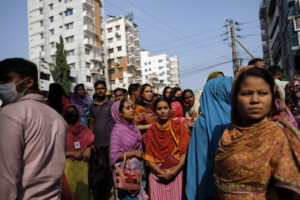
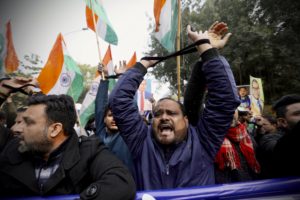
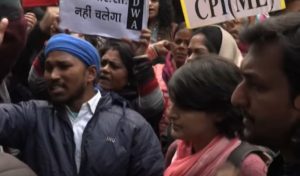
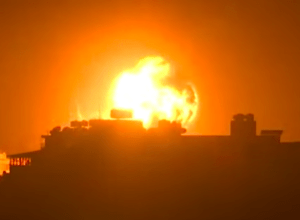
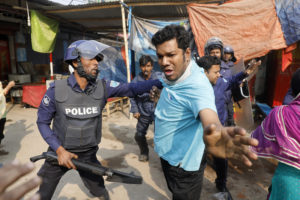
You need to be a supporter to comment.
There are currently no responses to this article.
Be the first to respond.